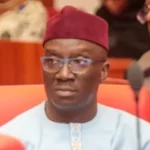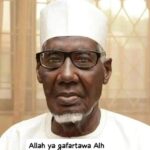I have over the past few weeks; 29th October to 10th December published six narratives of perceived marginalisation in which I summarised, as I see it, the discourses of the political elite in the six geo-political zones of the country. I end the series today with a few general reflections. Our use of the six geopolitical zones as an expression of our diversity is itself of dubious utility. It was a categorisation invented by British anthropologists brought in by the colonial authorities at the beginning of the 20th Century to map tribal and cultural differences and affinities within the Nigeria land area. At the end of their research, they announced that there were six cultural zones in the territory – the Emirate states, Borno and environs, Middle Belt minorities, Yorubaland, Igboland and Southern minorities. In 2006, when under the leadership of late Pa Anthony Enahoro, the Pro- National Conference Organisation (PRONACO) repeated the same exercise; they came out with 18 zones. Cultural mapping is a very subjective exercise.
The reality on the ground is that the mosaic of identity profiles in Nigeria is vast, complex and multi-dimensional. Ethno-regional identities in Nigeria have developed along a tri-tendential trajectory. The first is the North/South divide that emerged at the beginning of the colonial period. The second is the tri-polar framework related to the three colonial regions and the majority groups that dominated each region. The third and maybe the most important tendency in Nigerian identity politics is a persistent multi- polarity which has been continuously repressed by regional, zonal and state hegemons who have always sought to dominate the nearest neighbouring minority group. The essence of Nigerian politics is the variable geometry played by the hundreds of ethnic, linguistic, religious and cultural groups in the country. We recall that in his 1995 Independence address to the Nation, General Sani Abacha had announced the introduction of a modified Presidential system in which six key executive and legislative offices will be zoned and rotated between six identifiable geographical groupings; North-West, North-East, Middle- Belt, South-West, East-Central and Southern-Minority. There was a lot of disquiet because the question on the ground is who will be accepted as genuine leader of each of the zones.
Historically, the fears of domination of one zone over the others played a central role in convincing politicians of the necessity of a federal solution for the First Republic. The First Republic which operated essentially as equilibrium of regional tyrannies was however characterised by the domination of each region by a majority ethnic group and the repression of regional minorities. The relative autonomy enjoyed by the regions has been eroded during three decades of military rule and the creation of states from two regions to thirty-seven should have addressed the domination issue. It has not. The steady rise of ethno-regional tensions and conflicts has however continued unabated. I believe that the reason for this has been the supplanting of Nigeria’s federal tradition by a Jacobin unitary state. The erosion of multiple poles of political power that have existed in Nigeria by military dictators and subsequently by an all powerful presidency has exacerbated the spectre of the fear of domination in the country. The Nigerian state is no longer seen as a neutral arbiter. Negotiation and conflict resolution mechanisms have broken down and ethno-regional political actors have been taking maximalist positions and treating compromise with disdain. Each bloc believes it has the worst deal in the country.
It is for this reason that marginalisation, defined as the outcome of domination, is the most favoured word used by the Nigerian elite to describe their perceived political reality and above all to seek for more access to the national cake. I have shown in this series that in all of Nigeria’s six geopolitical zones, the story is very similar – due to domination, the “people” have been marginalised. Two broad issues are posed when ethno-regional domination emerges as a political issue in Nigeria. The first issue is the control of political power and its instruments such as the armed forces, the public service and the judiciary. The second is the control of economic power and resources. Both are powerful instruments that are used to influence the authoritative allocation of resources to groups and individuals. I have used the six geopolitical zones simply as an idiom to track the narrative on the marginalisation of Nigerians.
The Nigerian military and their successors have transformed the country’s body politic in a very significant manner since 1966. In the first place, the culture of mega corruption around the person of the Head of State or President has been entrenched. There has been a complete prebendalisation of state power and virtually all acts by public officials involving public expenditure or public goods of any kind leads to the appropriation of state resources. As the routine operations of government have been subjected to prebendal rules, the big boss and his retinue looms into dominance and all others are by definition marginalised. This process is dramatised by the fact that we run a rentier economy and he who controls the petroleum ministry controls everything. In other words, marginalisation is the affirmation that Nigerian federalism has been sacrificed on the altar of over- centralisation of the political system. The essence of Nigerian politics is that the president and the governors are dominant and the 167 million other Nigerians are marginalised.
The consequence is that the struggle to produce a president or a governor becomes lethal and once someone occupies the office, the only issue on the table is not policy or performance but power shift to other geopolitical zones. This is the problem that we need to address. Elections should be about democracy not about who will be the big boss in mega looting. It is clear to me that consolidating and deepening our democracy is the key challenge of our times. Democracy, if properly practiced offers social groups an opportunity to defend social gains by having a say on how broad decisions are made and by providing a framework for rules and institutions to be periodically tested and upgraded without resorting to violence. This is what we lack.
The key to the future of the Nigerian state is found in the crisis of the rentier economy. State obligations are growing in a period in which petroleum rent is declining and most of the revenue that comes in is stolen. This means that trickledown effect of economic growth has disappeared as the incidence of poverty among Nigerians has grown from 54% to 69% of the population in fifteen years. The process of rebuilding Nigeria will start when public officials who abuse their positions are made to pay for their misdeeds. The looters of the national wealth must be made to account for their actions against the Nigerian people. If we do so, we can begin to conquer the fear of Nigerians that Anthony Kirk-Greene wrote about: “Fear has been constant in every tension and confrontation in political Nigeria. Not the physical fear of violence, not the spiritual fear of retribution, but the psychological fear of discrimination, of domination. It is the fear of not getting one’s fair share, one’s dessert.”
 Join Daily Trust WhatsApp Community For Quick Access To News and Happenings Around You.
Join Daily Trust WhatsApp Community For Quick Access To News and Happenings Around You.


